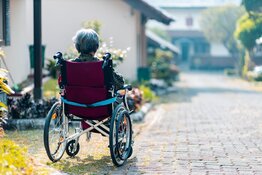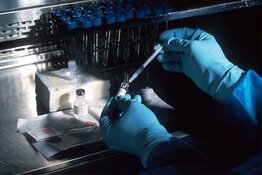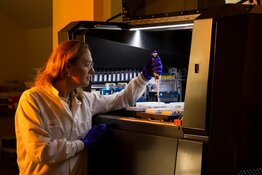Sernova Biotherapeutics Inc.'s (SVA:TSX.V; SEOVF:OTCQB; PSH:XETRA) newly announced interim data show the ongoing Phase 1/2 clinical trial of its Cell Pouch Bio-hybrid Organ in patients with type 1 diabetes (T1D) is on track to meet its primary and secondary endpoints, noted a news release. The primary endpoint is demonstration of safety and tolerability; the secondary endpoint is demonstration of efficacy.
"We are encouraged by these data and believe they build nicely on recent histologic evidence supporting the Cell Pouch's method of action," wrote H.C. Wainwright & Co. Analyst Dr. Joseph Pantginis in a May 14 research report. "These data are indicative of the trial being on track to succeed and help derisk any upcoming data readouts and subsequent studies."
The interim data are for 12 T1D patients transplanted with Sernova's Cell Pouch containing human donor islet cells, either in Cohort A (8-channel Cell Pouch) or ongoing Cohort B (10-channel Cell Pouch). The results analyzed include patients' C-peptide and HbA1C levels and survey responses.
The data show that eight of the 12 patients achieved insulin independence. The more transplanted islets a patient received, cumulatively over time, the better their outcome. The data demonstrate that within the Cell Pouch, the islet cells engrafted, functioned, and survived.
The data support the hypothesis that implantation of a 10-channel Cell Pouch, containing human donor islet cells, and coinciding optimized immune suppression, is a viable, and potentially superior, alternative to transplantation via the portal vein in T1D patients.
As for a more granular look at the results, with the Cell Pouch alone (prior to transplantation via the portal vein), nine of 12 patients saw reductions in their HbA1c, or average blood sugar level over the previous two to three months, to within the American Diabetes Association's recommended range of less than 7%. One patient's A1c dropped 24% 7.8% from 10.3%. The other two patients maintained their normal, less than 7%, A1c value they had at baseline. Each 1% reduction in A1c reduces myocardial infarction risk by 14%, according to published clinical studies.
"We are encouraged by these data and believe they build nicely on recent histologic evidence supporting the Cell Pouch's method of action," wrote H.C. Wainwright & Co. Analyst Dr. Joseph Pantginis.
Seven of 12 patients had a C-peptide level of 0.3 nanograms per milliliter or higher, and therefore met the threshold for successful islet cell engraftment and insulin production post islet transplantation into the Cell Pouch. C-peptide indicates how much insulin the body is, or in this case the islet cells are, producing.
The collective results of three surveys of patients show that their hypoglycemia awareness and quality of life improved following Cell Pouch implantation.
Specifically, based on their Clarke Hypoglycemia Awareness Scale results, 11 of 12 patients reported improved awareness of hypoglycemia and increased sensitivity to severe hypoglycemic symptoms. Ten of 12 patients indicated on the Hypoglycemia Fear Survey-II they were less worried about hypoglycemia and exhibiting fewer avoidance behaviors. Diabetes Distress Scores showed 10 of 12 patients felt less distressed about managing their T1D.
A Market Leader
This Ontario, Canada-based life sciences company is developing regenerative medicine therapeutics for chronic diseases, which combine its Cell Pouch Bio-hybrid Organ with stem cells. It is one of the companies currently dominating the global live cell encapsulation market, according to Mordor Intelligence. Sernova's lead program is in T1D.
"If Sernova is successful in bringing its functional cure for insulin-dependent diabetes to the stage where it can go into commercial production, the global market for it will be massive," Technical Analyst Clive Maund wrote in a report last year.
Whereas its investigative treatment for T1D requires immunosuppression, Sernova is developing technologies, via partnerships, that would potentially eliminate the need for it, a "blue sky objective," Dr. Douglas Loe, Leede Financial Inc. analyst, pointed out in a recent research report.
Sernova's second clinical program is in hypothyroidism. Just last month, Streetwise Reports reported, the U.S. Food and Drug Administration greenlighted a Phase 1 trial evaluating Cell Pouch as a regenerative treatment for hypothyroidism in patients post partial or radical thyroidectomy.
Diabetes Drives Sector Demand
The global live cell encapsulation market, including regenerative medicine/cell transplantation and drug delivery, is forecasted to reach US$370 million (US$370M) in value by 2032 from US$251M in 2022, according to Global Market Insights. This reflects a 3.8% compound annual growth rate during the forecast period.
Today, live cell encapsulation is being used in regenerative medicine, specifically in diabetes, to replace disease or damaged tissues, and in drug delivery, notably in Parkinson's disease, Grand View Research noted. The efficacy in diabetes and the world's increasing diabetes population should drive demand for this method and in turn, contribute to market growth. According to Statista, an estimated 537 million (537M) people around the globe are living with diabetes and by 2045, about 783M will be.
Increasingly, live cell encapsulation is being developed to administer therapeutics for various other chronic medical disorders, including cancer, anemia, heart failure and autoimmune diseases, according to Mordor Intelligence. This will continue to spur market expansion during the forecast period as well.
The benefits of the approach are another growth driver, indicated Global Market Insights. When applied in regenerative medicine, cells can be released under regulated conditions and can be transported to a specific area of the body while being shielded from an immune response.
North America is projected to dominate this market at least through 2030, Mordor pointed out. Contributing factors are the presence of key players, rising per capita healthcare expenditure, increasing funding for and investment in research and development programs in the U.S. and Canada and established healthcare infrastructure.
The Catalysts: Program Milestones
Investors should watch for Sernova to begin enrolling patients in Cohort C of its ongoing Phase 1/2 T1D trial. This is anticipated in H2/25.
Once the Cohort C component of the study is done, Sernova plans to launch a type 1 diabetes clinical trial of the Cell Pouch Bio-hybrid Organ with induced pluripotent stem cell islet-like clusters, in collaboration with Evotec AG (EVTCY:OTCPK). This is likely to happen next year.
2,757% Return Potential
H.C. Wainwright's Pantginis has a Buy on Sernova and a target price implying a 2,757% return.
According to him, the clear clinical benefit of Sernova's regenerative treatment delivered via Cell Pouch, in T1D patients, particularly that of insulin independence: "1) speaks to the potential of the Cell Pouch device, 2) raises the Cell Pouch's strategies in a competitive environment and 3) continues to crystallize Sernova's stock's possible upside."
 Streetwise Ownership Overview*
Streetwise Ownership Overview*
Sernova Biotherapeutics Inc. (SVA:TSX.V; SEOVF:OTCQB; PSH:XETRA)
The analyst also wrote on May 14, "We believe visibility for the company should increase around its opportunities around its Cell Pouch system across multiple indications, starting with T1D."
Leede Financial's Loe has a target price on Sernova suggesting a 614% uplift from where the stock is trading now. He, too, rates the life sciences firm Buy.
Ownership and Share Structure
According to Refinitiv, about 4.1% of the company is held by insiders and management and approximately 0.05% by institutions. The rest is retail.
Top shareholders include Director Steven Sangha with 3.97%, Chief Financial Officer James Parsons with 0.12%, CATAM Asset Management AG with 0.05%, and Chief Business Officer Modestus Obochi with 0.02%.
Sernova has 328.48M outstanding shares and 315.01M free float traded shares. Its market cap is CA$49.5M. Its 52-week range is CA$0.15−CA$0.40 per share.
| Want to be the first to know about interesting Regenerative Medicine and Medical Devices investment ideas? Sign up to receive the FREE Streetwise Reports' newsletter. | Subscribe |
Important Disclosures:
- Sernova Biotherapeutics Inc. has a consulting relationship with Street Smart an affiliate of Streetwise Reports. Street Smart Clients pay a monthly consulting fee between US$8,000 and US$20,000.
- As of the date of this article, officers and/or employees of Streetwise Reports LLC (including members of their household) own securities of Sernova Biotherapeutics Inc.
- Doresa Banning wrote this article for Streetwise Reports LLC and provides services to Streetwise Reports as an independent contractor.
- This article does not constitute investment advice and is not a solicitation for any investment. Streetwise Reports does not render general or specific investment advice and the information on Streetwise Reports should not be considered a recommendation to buy or sell any security. Each reader is encouraged to consult with his or her personal financial adviser and perform their own comprehensive investment research. By opening this page, each reader accepts and agrees to Streetwise Reports' terms of use and full legal disclaimer. Streetwise Reports does not endorse or recommend the business, products, services or securities of any company.
- This article does not constitute medical advice. Officers, employees and contributors to Streetwise Reports are not licensed medical professionals. Readers should always contact their healthcare professionals for medical advice.
For additional disclosures, please click here.










































